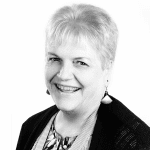By Leigh Neely
Taxes are forever
Many people believe you don’t file tax returns after retirement with a fixed income, but that may not be the case.
You may not make enough income in retirement to pay taxes, but John Krier, district coordinator for Villages Tax-Aide, says you still need to file a return.
“Filing a tax return can help you avoid identity theft,” John says. “File as early as you can but be sure you have all your tax documents when you file. Filing early prevents others from using your Social Security number to file a false claim and steal your identity. You also have the IRS documents to prove you are who you say you are.”
Identity theft continues to be a problem, especially for seniors who often give out confidential information on the phone without realizing it’s a scam.
Villages Tax-Aide is part of a national organization sponsored by the AARP Foundation, the charitable arm of the American Association of Retired Persons. This was the organization’s 50th year of offering free tax-filing help to anyone of any age, but it was especially designed to help those 50 and older. Villages Tax-Aide is in its 20th year and prepares returns in Lake and Sumter counties.

All the workers in Villages Tax-Aide are volunteers. They receive training from the AARP Foundation and are certified by the Internal Revenue Service. If you feel you cannot be a tax preparer, volunteers also serve as client facilitators, technical support providers, management assistants, greeters, and bilingual interpreters. Last year, The Villages had 129 volunteer counselors and 49 client facilitators who helped more than 18,000 people with their 2016 federal tax returns.
Please note, everything done for you by these AARP Foundation volunteers is strictly confidential. This is a safe environment to file your tax return free with knowledgeable tax preparers. However, it is the taxpayer’s responsibility to get the tax return to the IRS.
For 2017 taxes, if you made $10,400 and are under age 65, you must file a return. Remember, everyone gets at least one deduction. Single persons or married persons who file separately can claim $6,350 as a standard deduction. Married couples filing jointly may claim $12,700, and those who are single with dependent children may file as “head of household” and claim $9,350. Other exceptions also increase the deduction. See irs.gov for other questions.

The number of documents and information required are too long to list here but can be obtained by going to villagestaxaide.com for the complete list. You also can make an appointment through this website. Any questions you may have can be answered by emailing taxaid@aarp.org anytime.
Retirees can be taxed on their Social Security income as well as pension benefits if what they make exceeds minimum earnings set by the Internal Revenue Service.
“If you have an IRA, you must start taking that out at age 70½, and that will be taxed,” John says. “If you sell any assets—stocks, bonds, what have you—that will be taxed. Just about any income you have is taxable from a federal standpoint. From a state standpoint, Florida doesn’t care. They don’t have an income tax.”
John says problems occur for many people when they reach that magic age of 70½ because they’re required to take minimum distributions of pension, IRAs, and so on. You pay taxes on the amount you’re receiving, and it increases your Social Security, making it taxable. If your total income becomes much higher, you may go into a higher tax bracket.
Upon the death of a spouse, the partner can file a joint return the year the spouse dies. After that, you must file as a single person.
“That’s a significantly higher tax rate,” John says. “In addition, you lose the personal exemption for your deceased spouse, and you lose the standard deduction. All of a sudden, your income goes up and your tax rate goes up and this often gives people a big shock when they see their tax bill.”
John says it’s vital for couples to discuss finances, even if only one spouse has handled them through the years. It’s important to know where all papers are kept, such as old tax returns and any papers related to current income from pension, stocks, and so forth. Even if you don’t know procedures for filing taxes, learn where everything related to taxes is kept and be aware of income and regular bill payments.
Another problem many people in The Villages face is the sale of their primary residence when moving here.
“In general, the IRS allows a $250,000 exclusion per person. If you have lived in the house for at least two of the past five years that you’ve owned it—and not rented or leased it—in most cases, you won’t even receive any tax paperwork on the house. If it exceeds $500,000, that additional money becomes taxable,” John says. “When this comes into play, somebody who might live in California or New York may think they’ve got it made coming to Florida, where housing is much less expensive, but they’ll be taxed on the sell.”
Another area taxpayers need to keep an eye on is home energy credits. According to the IRS website, the maximum lifetime limit is $500, so if you have previously used credits for windows or a furnace, you have less than you may think to take as credit.
“Be careful about what energy credits you’re looking for, and don’t take the contractor’s word for it that you’re going to get a big energy credit for windows or whatever,” John says.
Another big issue for today’s retirees is caring for dependents. Many grandparents are raising grandchildren, or they have a grandchild living with them.
“What the law says is that you have to provide more than half their support. That doesn’t mean just more than half of running the house,” John says. “What that means is you pay more than half of their share of the household costs.”
The household costs allotted is $10,000 per person. If you have a grandchild living with you that is making $20,000 but paying none of the household costs, that means that child’s income is considered $30,000. That person cannot be called a dependent. “If they’re making an income, they should be contributing to the household costs,” John says.
Regarding this, you must have Social Security numbers for every person being named on your tax return.
“The IRS is getting more and more particular about this because of identity fraud,” John says. “If you have dependent children in the home, be sure to acquire a Social Security number for them.”
One final note: “All of this is also going to change somewhat next year,” John says. “Until we get closer to the next filing season, we really won’t know all the changes that have come about with the new tax law.”
Get help
Here is a list of places to find free help from AARP volunteers with filing your income tax or with tax questions.
Sumter County
Panasoffkee Community Library
1500 County Road 459, Lake Panasoffkee
Villages Public Library at Pinellas Plaza
7375 Powell Road, Wildwood
Lake County
Goodwill
1855 S. Grand Highway, Clermont
W. T. Bland Library
1995 N. Donnelly St., Mount Dora
Leesburg Library
100 E. Main St., Leesburg
Hawthorne Marina
100 Hawthorne Blvd., Leesburg
Town of Lady Lake Library
225 W. Guava St., Lady Lake
Fruitland Park Library
205 W. Berckman St., Fruitland Park
The Villages
Colony Cottage Recreation Center
510 Colony Blvd.
La Hacienda Recreation Center
1200 Avenida Central
Paradise Recreation Center
1403 Paradise Drive
Mulberry Grove Recreation Center
8445 SE 165th Mulberry Lane
Leigh Neely began her writing career with a weekly newspaper in the Florida panhandle, where she not only did the writing, but delivered the papers to the post office and dispensers. She has been writing ever since for a variety of newspapers and magazines from New Jersey to Leesburg. With her writing partner, Jan Powell, Leigh has published two novels as Neely Powell.










































